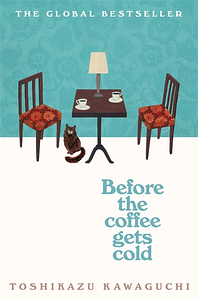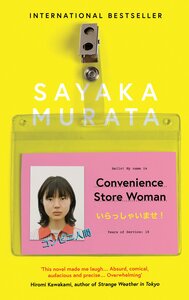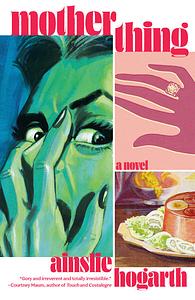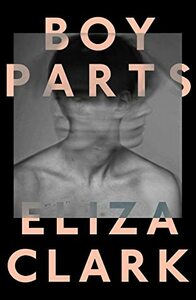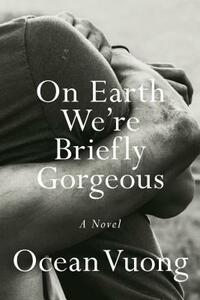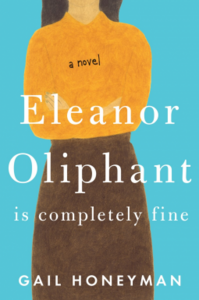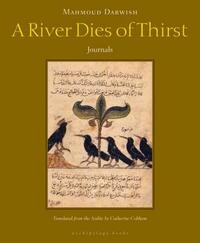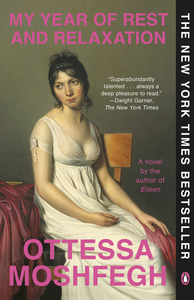You need to sign in or sign up before continuing.
Take a photo of a barcode or cover
notesofacrocodile's Reviews (257)
loved the way the author caught the emotions and paranoia of migrants caught amidst the turbulence of their adopted country. however, it didn't reach up to the greatness of his first novel, goat days.
considering that chugtai was a radical feminist, i am more inclined to think that the apparent portrayal of lesbianism in this story is of a more symbolic nature; that of women in a society flourishing and satisfying their needs amongst themselves without depending on a man in a space where they were traditionally perceived to be oppressed. i don't quite know how to process this story however, as she depicts two major queer characters of the story as pedophiles who exhibit predatory behaviour
// "But Kazu still goes on believing that, no matter what difficulties people face, they will always have the strength to overcome them. It just takes heart."
before the coffee gets cold consists of four stories that pose before its reader a question as old as time: what if you could go back in time? the catch is that you wouldn't be able to change the outcome of the present. but what if you could anyway?
the four chapters thus flow from this premise, brought to life in toshikazu kawaguchi's clear but atmospheric writing, which gets us acquainted and comfortable in the world within the cafe- the narration within the novel is a gentle voice that speaks to you as you take in the wafting vapours of freshly-served coffee, the aroma of ground beans, and of course, the distinctive clang-dong signalling the arrival of a cafe customer. while the writing is not too dense and easy to follow, it still attempts to tackle complex emotions, primarily grief. grief at not having said what you had wanted to, grief at who a loved one used to be, grief at not having noticed what had been so apparent at the time, and grief of not being there for the ones you love. but it also speaks quietly and thoughtfully of hope- hope for strength, hope for love, hope for the future, and hope for yourself.
i had some qualms about the last story in particular and wasn't very impressed by the first one, but the author delivered on the blurb as promised so i will give my stars for that
before the coffee gets cold consists of four stories that pose before its reader a question as old as time: what if you could go back in time? the catch is that you wouldn't be able to change the outcome of the present. but what if you could anyway?
the four chapters thus flow from this premise, brought to life in toshikazu kawaguchi's clear but atmospheric writing, which gets us acquainted and comfortable in the world within the cafe- the narration within the novel is a gentle voice that speaks to you as you take in the wafting vapours of freshly-served coffee, the aroma of ground beans, and of course, the distinctive clang-dong signalling the arrival of a cafe customer. while the writing is not too dense and easy to follow, it still attempts to tackle complex emotions, primarily grief. grief at not having said what you had wanted to, grief at who a loved one used to be, grief at not having noticed what had been so apparent at the time, and grief of not being there for the ones you love. but it also speaks quietly and thoughtfully of hope- hope for strength, hope for love, hope for the future, and hope for yourself.
i had some qualms about the last story in particular and wasn't very impressed by the first one, but the author delivered on the blurb as promised so i will give my stars for that
// "at that moment, for the first time ever, i felt i'd become a part in the machine of society. i've been reborn, i thought. that day, i actually became a normal cog in society."
a wonderful little novella that looks at a japanese convenience store worker named keiko furukura, murata gives us a story of an autistic-coded woman who grows up fearing that she will be eliminated if she does not exhibit 'normal' behaviour. furukura does not always find it easy, but eventually experiences comfort in the ordered and rule-based working of the convenience store, where she has been working for around eighteen years. her daily routine is dependent on what the work at the convenience store will require of her, even on her days off.
but society isn't always accepting of a person who goes against its norms and unspoken rules. life definitely cannot be easy for fukurura, who is an unmarried woman in her mid-thirties, who has never been involved in a romantic relationship before, and who has never held a job that wasn't at the convenience store.
the author does a brilliant job at criticising misogyny and ableism, especially with how everyone around furukura is adamant on her becoming 'normal', which basically means changing jobs and getting married. at one point she notes that people would even prefer that she be normal and have problems, rather than be herself and be happy. it is dark and depressing, but there is an underlying humour in the way that murata writes.
the part of the protagonist that was a convenience store worker was also written with depth, the way that only someone who has worked as one could have written. a quick search revealed that the author had been a convenience store worker herself at the time, which made sense. the environment and the details really pop out with the narration, and the methodical nature with which the protagonist approaches her work was depicted really well.
would definitely recommend this one to anyone looking for a quick read portraying the life of an adult who doesn't conform to the conventional idea of what an adult should be like.
a wonderful little novella that looks at a japanese convenience store worker named keiko furukura, murata gives us a story of an autistic-coded woman who grows up fearing that she will be eliminated if she does not exhibit 'normal' behaviour. furukura does not always find it easy, but eventually experiences comfort in the ordered and rule-based working of the convenience store, where she has been working for around eighteen years. her daily routine is dependent on what the work at the convenience store will require of her, even on her days off.
but society isn't always accepting of a person who goes against its norms and unspoken rules. life definitely cannot be easy for fukurura, who is an unmarried woman in her mid-thirties, who has never been involved in a romantic relationship before, and who has never held a job that wasn't at the convenience store.
the author does a brilliant job at criticising misogyny and ableism, especially with how everyone around furukura is adamant on her becoming 'normal', which basically means changing jobs and getting married. at one point she notes that people would even prefer that she be normal and have problems, rather than be herself and be happy. it is dark and depressing, but there is an underlying humour in the way that murata writes.
the part of the protagonist that was a convenience store worker was also written with depth, the way that only someone who has worked as one could have written. a quick search revealed that the author had been a convenience store worker herself at the time, which made sense. the environment and the details really pop out with the narration, and the methodical nature with which the protagonist approaches her work was depicted really well.
would definitely recommend this one to anyone looking for a quick read portraying the life of an adult who doesn't conform to the conventional idea of what an adult should be like.
motherthing is a horror novel by virtue of its narration that gradually descends into a horrifying self-rationalised insanity on the part of the narrator, punctuated by an unsettling rhythm to it. after all, what can be more traumatic and impactful than a terrible relationship with your mother/mother figure? i quite liked the consistent inconsistency of it, with the flow of the narration interspersed with scenes depicted in a play-like format and childhood flashbacks. i did not completely expect the ending, it admittedly was something i did not think the story would lead up to. the writing style was dark, humourous, and contemplative, and complemented the story very well; based on it alone, i am convinced to pick up other works by the author. liked this one very much.
i absolutely adored this novel. powerfully poignant and interspersed with beautiful poetic verses, it details the story of a gay vietnamese man and his troubled relationship with his mother, who has been traumatised from the war back home. it's a story of a boy who looks back into his childhood and understands with his acquired adult wisdom about the sacrifices that his mother and grandmother made for him and attempts to see his relationship with her in a more sober and understanding light. exploring themes relating to sexuality, being vietnamese in the u.s., and the vietnamese immigrant experience, ocean vuong weaves together a tragically moving story of a boy who pours his heart out into a letter that will forever be unopened.
autistic, depressed, lonely, AND has mommy issues ? she's just like me actually
// "I envy horses: if they break a leg and feel humiliated because they can no longer charge back and forth in the wind, they are cured by a mercy bullet. So if something in me gets broken, physically or spiritually, I would do well to look for a proficient killer, even if he is one of my enemies. I will pay him a fee and the price of the bullet, kiss his hand and his revolver, and if I am able to write, extol him in a poem of rare beauty, for which he can choose the metre and rhyme."
// "Oh, sleep. Nothing else could ever bring me such pleasure, such freedom, the power to feel and move and think and imagine, safe from the miseries of my waking consciousness."
going to jump on ths bandwagon of people who relate to certain aspects of this novel, specifically the protagonist's method of coping with depression by going to sleep/becoming unconscious. i thought the conclusion was a bit sudden, but overall ottessa moshfegh is definitely an author that i will be coming back to read in the future.
going to jump on ths bandwagon of people who relate to certain aspects of this novel, specifically the protagonist's method of coping with depression by going to sleep/becoming unconscious. i thought the conclusion was a bit sudden, but overall ottessa moshfegh is definitely an author that i will be coming back to read in the future.


